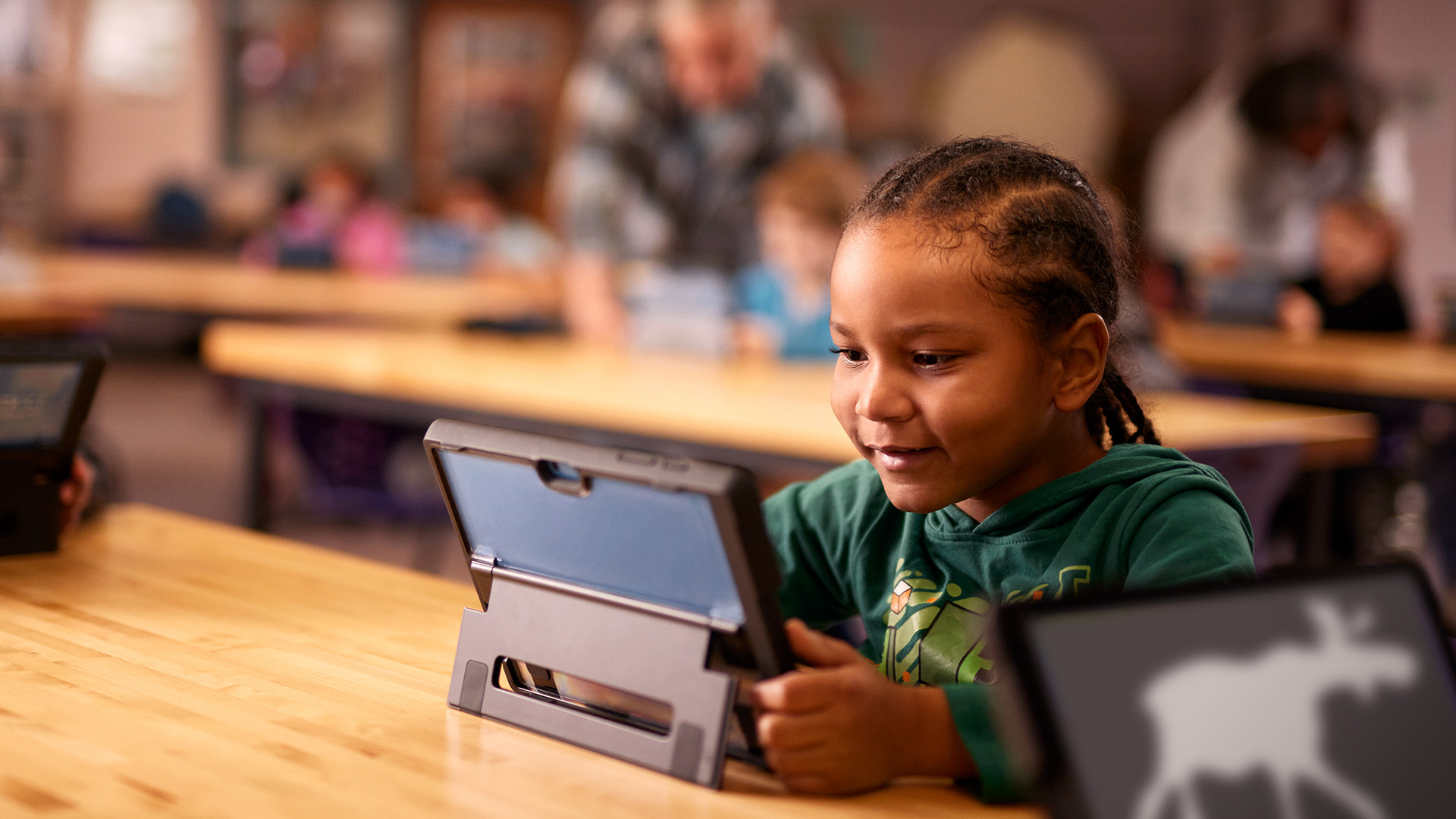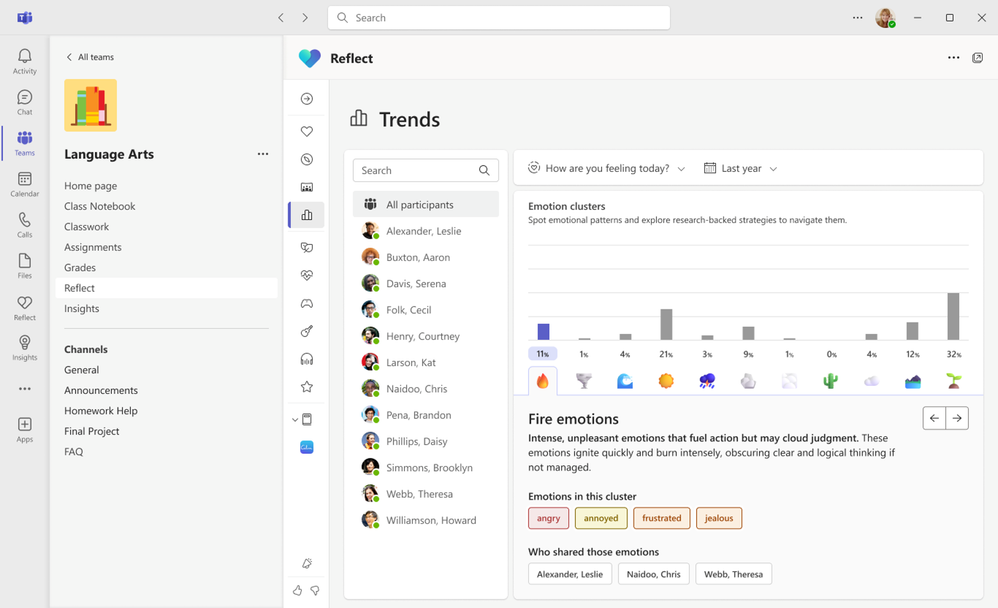Each May in the United States, we observe Mental Health Awareness Month to raise awareness about the importance of mental health and wellness. According to the United States Substance Abuse and Mental Health Services Administration (SAMHSA), half of all mental health disorders show first signs before a person turns 14 years old, and three-quarters of mental health disorders begin before age 24. We know experienced educators and leaders like you understand the immense responsibility of nurturing the emotional well-being of students and teaching about mental health in schools. We recognize that it’s crucial to prioritize resilience and balance for the overall health of your school communities and as a prerequisite for learning—throughout the year, and especially during Mental Health Awareness Month.
This month, Microsoft celebrates and honors your dedication to creating safe, supportive classrooms and communities. We offer our gratitude with a collection of tools, activities, and ideas designed to support both students and educators on this journey. Get started with social emotional learning activities and curriculum from Microsoft Education for Mental Health Awareness Month 2024.
Social emotional learning and mental health
Experts often stress the importance of social emotional learning (SEL) in nurturing student mental well-being. SEL plays a pivotal role in cultivating positive self-perception and relationships with others, while also mitigating emotional distress and risky behaviors. Thoughtful application of SEL activities builds self-awareness, conflict resolution strategies, and empathy to foster not only personal growth but also a strong classroom community. To get started with some practical lessons and activities to teach students about mental health, explore our social emotional learning activities and curriculum.
“By promoting responsive relationships, emotionally safe environments, and skills development, SEL cultivates important ‘protective factors’ to buffer against mental health risks.”
– The Collaborative for Academic, Social, and Emotional Learning (CASEL)
Mindfulness in Minecraft
If you’re wondering how to teach mental health to students, look no further than Minecraft Education. In the realm of educational innovation, Minecraft Education stands out as a versatile platform that not only entertains but also educates. Within its blocky landscapes, students can engage in a multitude of activities that bolster their understanding of various subjects. For instance, in the context of mental health and SEL, Minecraft offers unique opportunities for students to express themselves and collaborate in stress-free environments.

A student playing Minecraft in a school classroom. With its blocky landscapes, Minecraft gives students unique opportunities to express themselves and collaborate.
One such activity is the Mindful Knight, where students navigate through challenges that encourage them to practice mindfulness and coping strategies for stress management. Additionally, educators can use Reflect World, designed to develop students’ social-emotional skills through a creative and immersive experience. This colorful world includes various activities to teach about mental health. It focuses on developing empathy, self-awareness, emotion regulation strategies, and teamwork skills by providing students with a visual representation of a full range of emotions and empowering them with the tools to navigate these emotions effectively. Reflect World encourages students to connect their experiences in the game to real-world feelings, actions, and challenges.
Minecraft has also curated a series of wellness-related resources in the Minecraft Social and Emotional Kit. Resources within this kit span SEL concepts such as emotional well-being, empathy, and making responsible decisions. The activities and worlds can be used as-is or adapted to meet students’ needs.
Reflect’s Emotion Clusters and Emotion Board
Microsoft Reflect, a well-being app and Learning Accelerator, can help facilitate meaningful peer-to-peer and student-to-educator conversations about emotions and mental health. This Mental Health Awareness Month and beyond, get started with Reflect check-ins, age-appropriate reflections, intentional break breaks, and actionable data.
To help you mobilize the data in Reflect, use Emotion Clusters—a new feature that offers additional ways to tailor instruction and support learners’ needs and interests. These clusters categorize emotions into 11 categories inspired by natural elements, aiding educators in tailoring instruction to address various emotional states. By observing these clusters over time, educators can simplify the understanding, classification, and response to emotional trends, supporting individual learner needs and group dynamics. This feature aligns with Reflect’s mission to support social-emotional learning, gain insights into student well-being, and foster a positive learning community.

Educator view of Emotion Clusters in Reflect. This new feature groups emotions according to their qualities and associated regulation strategies, helping educators tailor instruction to address various emotional states.
For educators and school leaders looking for an easy, device-free SEL activity this Mental Health Awareness Month, Reflect offers the Emotion Board activity. This tangible SEL activity is designed to engage younger students, particularly those in classrooms with limited device access. Using the Emotion Board, students can express their feelings during lessons, mornings, or at the end of the day by placing their card in the corresponding emotional category. Educators can then use the Reflect app on their mobile device to capture student responses, gaining valuable insights into the overall well-being of the class. Get started with Reflect and learn more ways to integrate Reflect activities for student engagement.
Nurturing student and educator well-being
A growing body of evidence demonstrates that focusing on educator social and emotional competence can also improve teacher well-being. In fact, educators with strong SEL skills have higher job satisfaction and less burnout and report feeling more effective at their jobs and lower levels of job-related anxiety.
To show some kindness to yourself this Mental Health Awareness Month, try taking a moment to recharge. Reflect has partnered with Calm—the leading mental health brand with the #1 app for meditation, sleep, and relaxation—to integrate science-backed content designed to help users meet their new goals of sleeping more, stressing less, and living better. Explore all the Calm activities in the Reflect app. For educators and students who want more activities—stories, music, lullabies, exercises, and meditations designed specifically for kids—they can enjoy a 40% discount on a subscription to Calm.
Let’s work together to create supportive environments where students thrive and educators flourish! Cultivate healthy habits with social emotional learning activities and curriculum from Microsoft Education this Mental Health Awareness Month and year-round. For more reading on SEL, take a look at Eight great ways to celebrate SEL Day 2024.




